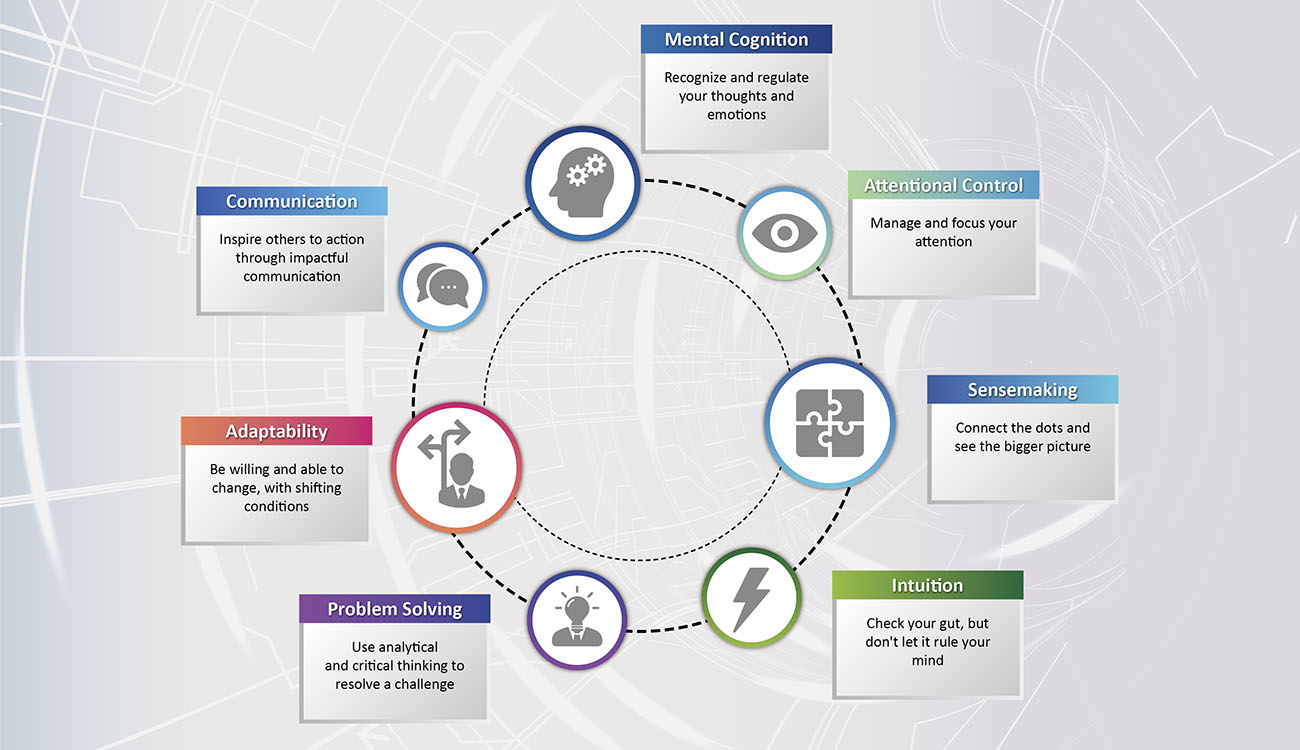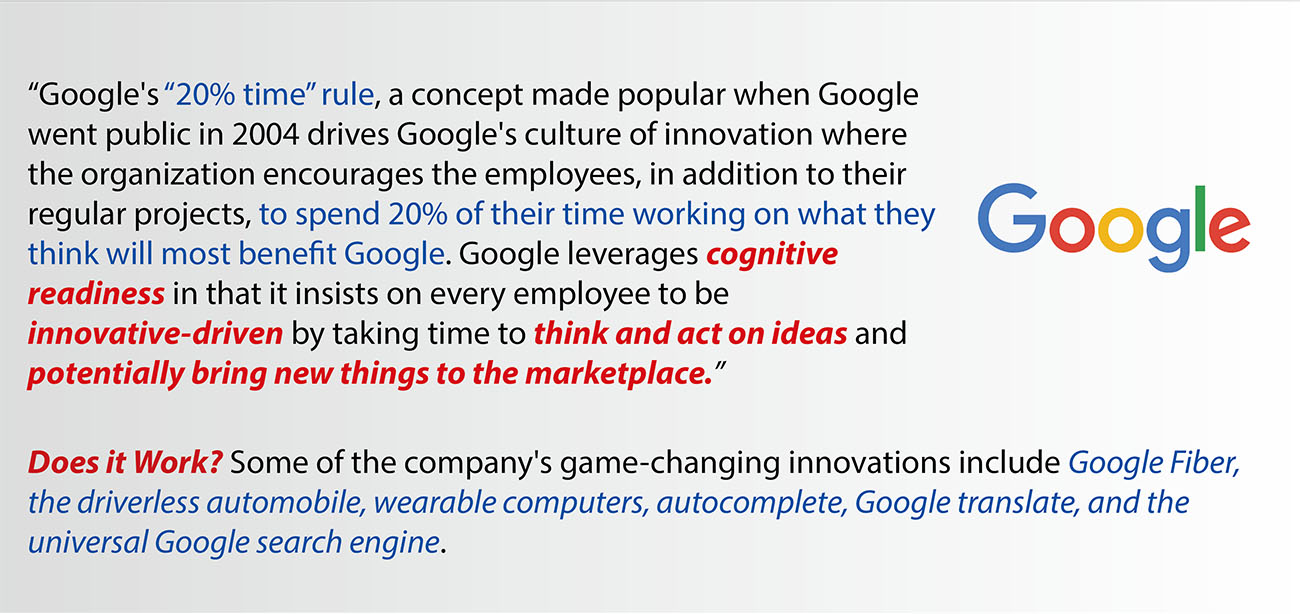Cognitive Readiness Suite of Competencies

Figure 1: Paragon7 Suite of Cognitive Readiness Competencies
The suite of cognitive readiness skills can be viewed as part of the advanced thinking skills that make leaders ready to confront whatever new and complex problems they might face. Cognitive readiness is the mental preparation that leaders develop so that they, and their teams, are prepared to face the ongoing dynamic, ill-defined, and unpredictable challenges in the highly disruptive and VUCA-driven business environment. The cognitive readiness skills will develop, enhance, or sustain a leader’s ability to navigate successfully in this new normal.
The Executive Development Associates (EDA) has identified the following seven key cognitive readiness skills, collectively known as Paragon7 (See Figure 1), which will develop, enhance, or sustain a leader’s ability to navigate successfully in this new normal:
- Mental cognition: Recognize and regulate your thoughts and emotions.
- Attentional control: Manage and focus your attention.
- Sensemaring: Connect the dots and see the bigger picture.
- Intuition: Check your gut, but don’t let it rule your mind.
- Problem solving: Use analytical and creative methods to resolve a challenge.
- Adaptability: Be willing and able to change, with shifting conditions.
- Communication: Inspire others to action; create fluid communication pathways.
Overall, heightened cognitive readiness allows leaders to maintain a better sense of self-control in stressful situations, which is crucial when resolving complex problems and decision making.
The detailed descriptors of each of these seven cognitive readiness competencies can be found in Table 1.
| Metacognition | Attentional Control | Sensemaking |
| Metacognition is monitoring and managing your emotional and mental processes Metacognition comes from the words “meta” meaning beyond and “cognition” meaning thinking. It describes the ability to control your mental and emotional processes and, in turn, manage behaviors and maximize performance. Metacognition involves self-awareness and the use of intentional strategies to self-regulate your cognition, emotions, and actions. Metacognitive individuals and organizations engage in reflective practice. They take time to plan before, during, and after situations |
Attentional control (“mindfulness”) is the skill of actively managing your attention as a finite resource Attentional control, or mindfulness, is the conscious control of your own attention. People or organizations with high levels of attentional control pick up on weak signals. They can direct and sustain their attention deliberately, without being diverted by distractions, and they can stay focused, even if that sustained attention becomes unpleasant. You can help develop your attentional control “muscles” by practicing attentional shifting and focusing exercises | Sensemaking is the ability to quickly connect the dots to gain understanding Sensemaking is pattern-based reasoning; in otherwords, it’s the process of developing an understandingof an event or situation, particularly when it’scomplex and you lack clear, complete, and orderly data. Good sensemakers “put the pieces together” quickly and overcome information gaps. They discern meaning from patterns and recognize how parts of a system fit into the bigger picture, how individual elements interact, and how short-term goals impact long-term strategies |
| Intuition | Problem Solving | Adaptability | Communication |
| Intuition comes from your “fast thinking” (elephant) cognitive system Intuition is fast; our minds quickly generate intuitive judgments without active deliberation. We all use intuition— especially under VUCA conditions— but our intuition isn’t always reliable. It’s important to know when it can be trusted and how to best use it | Problem solving is an analytical approach to resolving difficult issues Problem solving relies upon three factors: subject-matter knowledge, motivation, and problem-solving “meta-skill,” which is a mental list of problem-solving techniques and decision strategies typically associated with critical thinking and decision analysis tools | Adaptability is the ability and willingness to change with shifting conditions Adaptability is the consistent willingness and ability to alter attitudes, thoughts, and behaviors to appropriately respond to the actual or anticipated change in the environment. This includes flexibility, resilience, responsiveness, and agility | Communication is about conveying deeper intent and understanding Communication is the conveyance of information and sentiments. Clear, honest, and frequent communication facilitates team performance. Beyond that, you can use linguistic tools to help increase saliency, clarity, relevance, and persuasive value |
Table 1: The Descriptors of the Paragon7 Suite of Cognitive Readiness Competencies
Case Study on Developing an Innovative Driven Culture @ Google with Cognitive Readiness
Reference: Sattar Bawany (2023), Leadership in Disruptive Times: Negotiating the New Balance. Business Expert Press (BEP) LLC, New York, NY. Abstract available at: https://www.disruptiveleadership.institute/second-edition-book/


